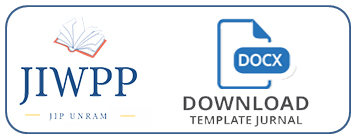WORKSHOP TEKNIK MENENTUKAN RESEARCH GAP DAN NOVELTY UNTUK MENINGKATKAN KUALITAS SKRIPSI MAHASISWA
DOI:
https://doi.org/10.29303/interaktif.v3i1.86Keywords:
Novelty, Research Gap, ThesisAbstract
Novelty is an important element in a study, including in student thesis research. However, the conditions in the field, the quality of student thesis is still lacking where the themes studied from time to time, from one generation to the next are almost the same and keep repeating, student skills in determining and selecting research themes that are new and relevant to current conditions still very low. It is rare to find elements of novelty and usefulness principles from the thesis research conducted. Students are often confused when asked about the novelty of the research they have done. Facing this, one of the initial solutions offered is to conduct a workshop on techniques for determining research gaps and the novelty of a study for students, especially 6th semester students who will propose topics or thesis titles. Reviewing various literatures to see research gaps from a major research theme will assist students in demonstrating elements of novelty or novelty from the research being conducted, thereby increasing the quality of the resulting thesis. This service activity certainly aims to provide knowledge and understanding to students about research gaps and novelty and how to determine techniques. The stages in this workshop activity are from the coordination stage, the promotion stage, the implementation stage as well as the evaluation and reporting stage. This workshop activity was carried out on Campus 2 of FKIP University of Mataram on May 27 2023. Based on the results of the pretest and posttest there was an increase in the understanding of the students participating in the workshop regarding the concept of research gap and novelty and based on the results of the participants' responses to the workshop activities carried out, the average student gave a positive response
References
Asrori, F. K. (2018). Analisis kendala dan percepatan penyelesaian studi mahasiswa jurusan ansiakunt. Jurnal Pendidikan Dan Sosial, 28(1), 66–85. https://scholar.google.com/citations?view_op=view_citation&hl=en&user=03HviqoAAAAJ&cstart=20&pagesize=80&sortby=pubdate&citation_for_view=03HviqoAAAAJ:Lo8V22OuN40C
Cuccu, G., & Gomez, F. (1996). When Novelty is Not New. Scientific American, 274(4), 34–34. https://doi.org/10.1038/scientificamerican0496-34b
Daud, A., & Cpm, A. (2019). Sintesis Konsep Baru ( Novelty ) dan Pengembangan Model Penelitian Ilmiah. Universitas Terbuka.
Hidayatullah, R., & Wendhaningsih, S. (2021). Online art class: a study on the cause and effect of plagiarism. AKSARA: Jurnal Bahasa Dan Sastra, 22(1), 116–127. https://doi.org/10.23960/aksara/v22i1.pp116-127
Islami, N. (2018). Studi Literatur dan Publikasi Ilmiah. https://fkip.unri.ac.id/wp-content/uploads/2019/10/Buku-Ajar-2018.pdf
Noor, M. (2021). Novelty/Kebaruan Dalam Karya Tulis Ilmiah Skripsi/Tesis/Disertasi. MIMBAR ADMINISTRASI FISIP UNTAG Semarang, 18(1), 14. https://doi.org/10.56444/mia.v18i1.2164
Shadiqi, M. A. (2019). Memahami dan Mencegah Perilaku Plagiarisme dalam Menulis Karya Ilmiah. Buletin Psikologi, 27(1), 30. https://doi.org/10.22146/buletinpsikologi.43058
Shadiqi, M. A., Muluk, H., & Milla, M. N. (2019). Experiment Replication: A Proposed Solution for Developing Psychological Research in Indonesia. ANIMA Indonesian Psychological Journal, 33(4), 213–230. https://doi.org/10.24123/aipj.v33i4.1795
Sukardi. (2009). The Novelty Issues In The Agroindustrial Research. Jurnal Teknologi Industri Pertanian, 19(2), 115–121.
Wahidah, A. N. (2022). Miskonsepsi Unsur Novelty dalam Penelitian Pendidikan (Tinjauan Kajian Penelitian Relevan pada Skripsi Mahasiswa FTIK Iain Pontianak). Jurnal Pendidikan Tambusai, 6(2), 12401–12406.















